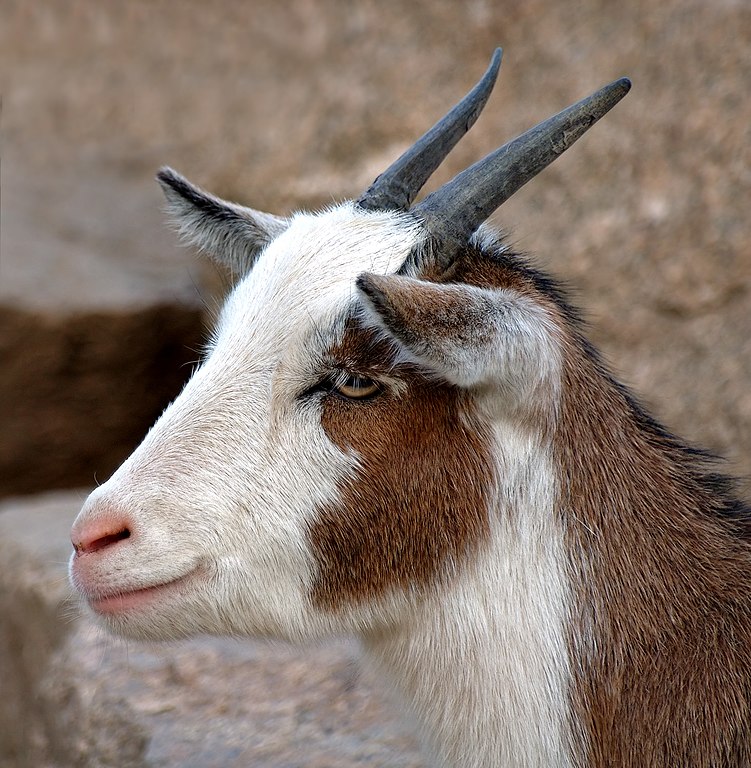Stead Gót
In Beidúin culture, a stead gót (/ˈstɛd ɡoʊt/; Nemidic: μαϙαν αλΜαειζ, riadicized maqan al-Maeiz) is an important component of the highly ritualistic male child-naming ceremony called the Qubul Mumtan (Nemidic: Ϙυβυλ Μυμταν “Grateful Acceptance”). The stead gót plays three roles in the Qubul Mumtan: as the sacrificial expression of gratitude and dedication of the child to God, as the main course of the celebratory feast, and as the obligatory gift to the poor of the community.
Origins
The ritual of the Qubul Mumtan recalls an important event in the spiritual development of the prophet-king Nemeth I, as recounted in the Hyat. On the occasion of the birth of Nemeth’s first child, a son named Nadath, God tested the prophet’s faith. At dawn of the seventh day after Nadath’s birth Anahu'ana spoke to Nemeth, and commanded him to take Nadath into the desert and to erect an altar there, and to sacrifice his newborn son upon the alter as proof of his piety and faith.Nemeth wept upon hearing the words of Anahu'ana, but resolved to obey the command of God. He brought Nadath into the desert, erected an altar and placed the child upon it. As Nemeth raised his knife to complete the sacrifice, Anahu'ana stayed his hand and revealed to him a gót entangled in a thicket of desert rós, instructing him to sacrifice the gót instead. It is this event that is recalled in the ritual of Qubul Mumtan.
Ritual
The Qubul Mumtan consists of several distinct ritual components which can consume the better part of an entire day. It begins at dawn of the seventh day after the birth of a male child,1 when the boy’s father rises to select the gót from his herd. It must be at least two years old, healthy, strong and without any imperfection. It has become the custom among the Beidúin to select one of the finest góts of the herd for purposes of Qubul Mumtan.As the extended family and invited guests arrive, the men make ready to assist the father with the ritual sacrifice of the stead gót, which must be performed in strict conformance with religious law. As he ritually slaughters the stead gót, the father proclaims his gratitude to God and announces his son’s name. When the sacrifice is complete, the meat and organs are turned over to the women, to be included in the large celebratory meal, called the Maduba, which will take place later in the day.
While the feast is being prepared, the newborn boy is presented to the assembled guests. He is ritually washed, and his hair is shaved and weighed by the local Qasu. The family traditionally donates the weight of the hair in silver Dirhem to a nearby Qanisa for use in serving the poor.
At the Maduba banquet, one-third of the meat of the stead gót is served to the family of the child, with the heart and liver reserved for the mother, one-third is shared among the guests, and one-third is donated to the poor of the community.
1 The Qubul Mumtan ritual is not performed for female children.
Stead Gót
μαϙαν αλΜαειζTRADITION / RITUAL
12Anahu'ana spoke to Nemeth, and he said Lay not thine hand upon the boy, neither do him any harm, for I know thou fearest my wrath, seeing thou hast not withheld thine only son from me.
13And Nemeth lifted up his eyes, and behold! a gót caught up in a thicket of róses.
14And Nemeth went and took the gót, and offered it up for a burnt offering in the stead of his son.
-- Hyat al’Nabii, Fatra HaˈTunadj, 12 - 14



Comments